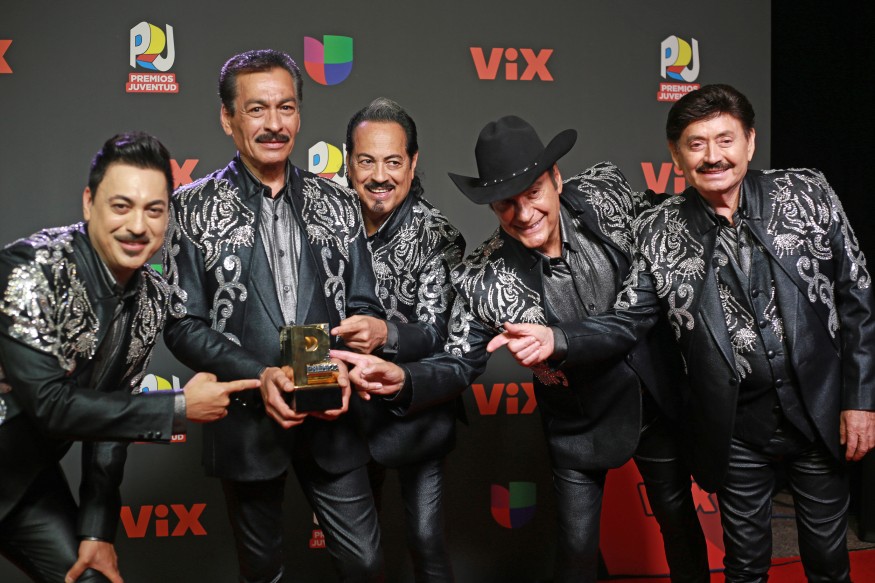Mexico Is Trying to Silence 'Narco Ballads'—Los Tigres del Norte Blame Trump
Mexican Music Biggest Band has strong opinions about the growing veto to narco music

As Mexican officials ramp up efforts to ban the performance of narcocorridos—gritty, narrative ballads often associated with drug traffickers—Los Tigres del Norte, the legendary norteño band that helped define the genre, say the crackdown is not just local policy. Frontman Jorge Hernández connected the rising censorship to political pressure from the United States, accusing former President Donald Trump's hardline stance on immigration and crime of influencing how Mexico polices its own cultural expression.
"The new U.S. government [under Donald Trump] is more forceful, and in some way wants to pressure Mexico's government to be more forceful about what's happening (with organized crime.) That had never happened before. I think that's what's pushing music, in a way, to take on a different form of how we communicate with the public. We have to be very alert about what we're going to do in the future, in our recordings," said Hernández in an interview with Spanish newspaper El País.
The lead singer and accordionist for the group admitted: "we're going to have to change...to stay out of trouble."
The comments come in the wake of Mexican President Claudia Sheinbaum Pardo's crackdown on performances that her administration considers to be glorifying narcotrafficking. The country has been suffering from widespread cartel violence for decades, and in collaboration with the U.S. government, the Sheinbaum administration has issued steep fines on performers who break the rules.
Hernández stated that, "The new U.S. government is taking a tougher stance and is somehow urging Mexico to do the same. That's never happened before. I think it's pushing music to find new ways to connect with the public. You have to be very careful about what you record in the future."
With Trump, who presents himself as an immigration and drug trafficking hardliner, in the White House, bands like Los Alegres del Barranco had their U.S. visas revoked and were officially investigated by the Mexican government after displaying a photo of the narco, El Mencho, during a concert. Narcocorrido star Luis R. Conriquez had the same problem.
Corridos about migrants are here to stay
Hernández also discussed the impact the Trump administration is having on the Mexican community abroad, stating, "Trump is putting on a lot of pressure, and I think it's going to get harder every day. In the U.S. now, they're asking for papers, stopping you, and making you prove your documentation—and we haven't experienced that since the 1970s."
Los Tigres del Norte have written their share of narcocorridos and feel that they're going to have to change the name of the genre, stating, "I think we're going to have to stop calling them corridos. Maybe we'll just call them 'stories' to stay out of trouble."
While Hernández stated that they have enough songs in their discography to "get them by," the censorship implemented by the government is not the solution. "It'll be hard to solve this quickly, but it's worth trying. We have plenty of songs to get by, even if they ban corridos. But I don't think that's the real solution," Hernández stated.
Other artists like Natanael Cano and the aforementioned Los Alegres del Barranco still perform narcocorridos despite the ban. Cano, considered a pioneer in corridos tumbados, has openly criticized the ban, calling "people who support this blinded by hate and envy."
While Los Tigres del Norte prepare to start the most ambitious tour of their long career, Hernández states that the band does have a corrido genre that they will never stop thinking: the stories about migrants. They were the first to incorporate them to their repertoire and their commitment to the Latino community in the U.S. runs deep.
"Mexican corridos began as a kind of press," he said. "They told people what was happening, like a messenger saying, 'this is going on here.'" That tradition, he argues, has always had a moral compass: lyrics that tell the truth without glorifying violence. "We're like journalists," he continued, "we write and narrate what's going on in language people can understand. The audience decides if it connects with them."
Originally published on Latin Times
Subscribe to Latin Post!
Sign up for our free newsletter for the Latest coverage!
© 2026 Latin Times. All rights reserved. Do not reproduce without permission.















